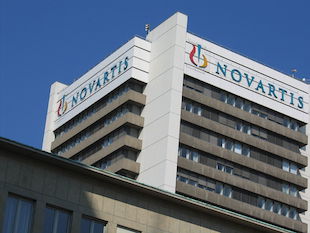 WIKIMEDIA, ANDREW HECHTHealthcare company Novartis has either fired or reassigned roughly 400 researchers previously tasked with developing cell and gene therapies. While most of those scientists will be employed by the company elsewhere, 120 positions will be eliminated, according to Reuters. The Cell and Gene Therapies Unit, led by Usman Azam, attracted attention for a promising experimental therapy based on chimeric antigen receptor T-cells (CAR-T), called CTL109, designed to treat lymphomas in children, reports BusinessInsider.
WIKIMEDIA, ANDREW HECHTHealthcare company Novartis has either fired or reassigned roughly 400 researchers previously tasked with developing cell and gene therapies. While most of those scientists will be employed by the company elsewhere, 120 positions will be eliminated, according to Reuters. The Cell and Gene Therapies Unit, led by Usman Azam, attracted attention for a promising experimental therapy based on chimeric antigen receptor T-cells (CAR-T), called CTL109, designed to treat lymphomas in children, reports BusinessInsider.
Earlier this year, Novartis instituted major corporate changes, replacing CEO David Epstein and dividing its pharmaceutical arm in two, with one division focusing on cancer research and the other on drug development. In a statement, the company said they reallocated researchers from the cell and gene therapies unit “as part of a natural evolution of our internal organizational design. An isolated Unit worked well under our prior Pharma Division structure, but with a new integrated development model, we can efficiently advance our work on CAR-T as part of our focus in immuno-oncology by reintegrating the functions,” according to Endpoint News.
“Novartis is committed to the ongoing development of CAR-T therapies” and will move forward with plans to submit CTL019 for approval later next year, the ...



















